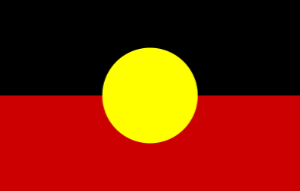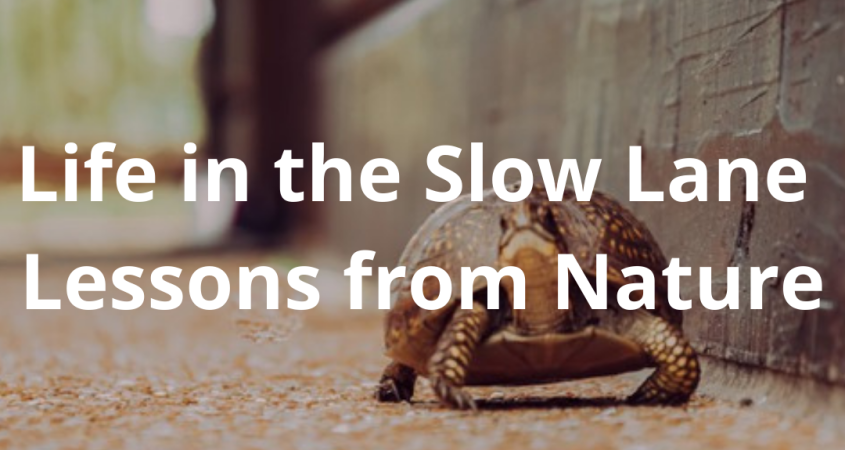Life in the Slow Lane – Lessons from Nature
Like others in lockdown around the world at the moment, I’m finding that my usual ability to think creatively is a touch jaded.
Most of us have grown up in a social environment that expects, encourages and rewards productivity. Genetics, family modelling and expectations, as well as our own personalities and capabilities, determine how we respond to social and political messages about performance and productivity.
If we have been high achievers in the past, and adrenalin our ‘drug of choice’, we are likely to find these times of social distancing, lock downs and working from home difficult – like a kind of metaphorical detox from the buzz of life in the fast lane.
Some of us will be grateful for time out and define these periods as opportunities to experience peace and tranquillity, while others will attach labels like slow, dull, frustrating and boring. Personally, I experience all of those reactions, sometimes from hour to hour in the same day. I miss my family but value electronic connections with them and with friends.
I love the days I get to consult with colleagues and the hours I spend providing clinical supervision for some wonderful counsellors.
 I enjoy walks with my husband and Saffi, our loveable Shoodle, who always insists on occupying the middle position. I love happy hour at the end of each day – a time when we share whatever iotas of news we may have gleaned separately, or reminisce about times past. Travel memories, times shared with our children, grandchildren and great grandchildren, are relived with appreciation. We know at these times, and many others, that we are fortunate to have each other and at some point in our rambling conversation we look at each other and sigh. Those sighs herald thoughts of compassion for all the folk whose bereavements and other life circumstances mean that they are forced to remember alone.
I enjoy walks with my husband and Saffi, our loveable Shoodle, who always insists on occupying the middle position. I love happy hour at the end of each day – a time when we share whatever iotas of news we may have gleaned separately, or reminisce about times past. Travel memories, times shared with our children, grandchildren and great grandchildren, are relived with appreciation. We know at these times, and many others, that we are fortunate to have each other and at some point in our rambling conversation we look at each other and sigh. Those sighs herald thoughts of compassion for all the folk whose bereavements and other life circumstances mean that they are forced to remember alone.
We also talk about regrets, and the people WE grieve, but try not to stay too long in ‘the valley of the shadow’ because it’s all too easy in isolation to create a well of introspection that isn’t helpful. Minus access to the familiar, moderating distractions of pre Covid life, it’s harder for us, like most people, to sustain the kind of balance that is necessary for physical and mental health unless we make a conscious decision to do so. Life in the slow lane certainly requires thoughtful planning.
And then came the Olympics – filling our screens for two weeks like a bright torch that relit sparks of hope for a future we hardly dared dream about.
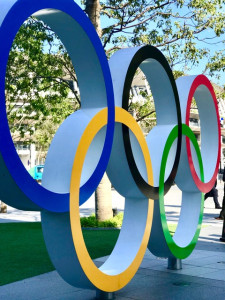 In our house we got to experience life vicariously in the fast lane for a few hours each day. All that caged energy could be expressed in loud cheering, gasps, and all the other noises that indicated our identification with, or support of, impressive athletes.
In our house we got to experience life vicariously in the fast lane for a few hours each day. All that caged energy could be expressed in loud cheering, gasps, and all the other noises that indicated our identification with, or support of, impressive athletes.
What a rush, what a great diversion from the monotony of the predictable sameness of life in lock down! Highlights of those days and nights flash across my memory screen and feel almost as stimulating in re-living as they did at the time.
I’m glad that as I write I still have the Paralympics to look forward to. The courage and determination of those challenged athletes inspires me, as does that of their parents. They have encouraged and supported their children to achieve their best, despite the risks involved, when many of us might have been tempted to unhelpfully wrap them in cotton wool.
Self centred reactions aside, my thoughts turn now not only to the athletes, but also to the coaches and organisers, to their families who supported them, and to the incredible obstacles they overcame to deliver two weeks of exciting competition, vivid colour, comradeship, and heartwarming moments of accomplishment. Imagine the adrenalin they have pumped for all the years leading up to those two short weeks, the highs and lows resulting from uncertainty about games that have been ‘on and off’ many times.
I hope that in the initial post achievement glow they feel as if it has all been worthwhile. But what will happen when that glow wears off? What will happen when they too are in lock down after being in the company of so many? Who will help them as they come down from adrenalin fuelled highs? How will they ‘detox’ enough to return to a less colourful world without hitting rebound lows that may be labelled, at times inappropriately, as depression?
The Highs and Lows of Everyday Life
From very early in life we experience ‘highs’ that are often followed by lows. A very simple and amusing example comes to mind immediately – the image of a toddler excitedly receiving an eagerly anticipated ice cream in a cone, only to have it fall to the ground after, or sometimes before, the first lick. Smiles are quickly replaced by tears. I’m sure parents and grandparents could provide many other examples.
For many of us, from childhood onwards, the anticipation and/or planning of an event might produce more joy than the event itself. Birthdays, Christmas, religious celebrations for all faiths, school dances, parties, picnics, concerts, movies, and holidays all come to mind. When those events fulfil our hopes and expectations, we may feel a ‘low’ when adrenaline wears off and tiredness sets in.
Think of all the planning that goes into arranging a wedding, especially one that is fraught with complex family dynamics in either or both families involved. The long months of pregnancy, or those involved in arranging an adoption or fostering , may be followed by a ‘low’ as the reality of parenting sets in – sleepless nights, endless dirty nappies, a baby with a cry that doesn’t have an ‘off’ switch, teething, tantrums, friendship dramas, culminating in the stress of navigating the shark infested waters of teen years.
As endless sayings warn us, or summarise reality, the higher we fly the bigger the drop.
In the right circumstances, with the right support, we slowly learn to live with what IS rather than what WAS, or what we dreamed about. Hopefully, we learn how to live an ordinary, everyday life with its highs and lows as well as many plateaus.
The advent of the Covid pandemic has not only reduced the speed of our life but in many cases brought it to a grinding halt. Learning to live with that can be hard work, especially if loss of income is involved along with a house full of fractious children. An even worse case scenario? Add grief after bereavement to the mix . In fact, grief after the loss of any significant relationship.
Creativity seems to ‘shrivel on the vine’, though is perhaps artificially fuelled for some by occasionally imbibing ‘the fruit of the vine’.
While some folk seem to have thrived in the slow lane, and some businesses have made record profits, most of us are in survival mode, in holding pattern. This has indeed been ‘the winter of our discontent’.
Lessons from Nature
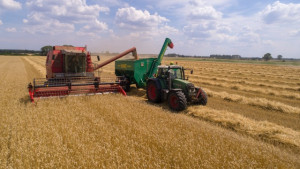 Winter is a rest and recovery time for many living creatures. Some hibernate, and, as the environment warms, they slowly wake, recharged, to begin once again their familiar creative cycle.
Winter is a rest and recovery time for many living creatures. Some hibernate, and, as the environment warms, they slowly wake, recharged, to begin once again their familiar creative cycle.
Think for a moment about farming. Fields are ploughed in autumn and regenerative crops lie dormant, new seeds and bulbs are planted, to wait, protected by the soil from frost, snow and wind. As the weather warms, new life appears.
Some fields produce bountiful yields year after year until the earth becomes depleted of ingredients essential for the production of life sustaining food, and for flowers, ornamental shrubs and trees. When that happens, farmers may allow fields to lie fallow for a year – to just be, to absorb nutrients from the environment enhanced by a medicinal dose of fertiliser.
If seeds and bulbs could dream, if the earth itself could dream, maybe they would imagine a new crop, different to those of previous times, perhaps better in some ways. The ability to adapt, to think outside the square, to find industries, businesses and occupations that ‘read’ and respond to our changed environment will be crucial if we are to survive financially, emotionally and spiritually. A simple, successful example is the way a seaside town in NSW, Woolgoolga, previously famous for bananas and ‘The Big Banana’ in particular, has adapted and more recently become famous for its berries.
I think humans need fallow periods to do much the same – to just BE for a while, to absorb via the senses, to dream, to imagine being differently productive in a future that will be different, with different needs.
It’s not helpful for any of us to beat ourselves up if we can’t stimulate a single creative thought at the moment. Let’s reframe our lack of productivity as a healthy fallow period and let ourselves relax into it.
I remember as a teenager getting into trouble in a post storm surf at Byron Bay, caught in a rip. My cousin, a lifesaver, stood on the beach and called out instructions for me to stop fighting the rip, to relax and swim sideways across it. When I eventually reached safety I asked why he hadn’t jumped into the surf to rescue me. His reply? “If I’d done that we might both have drowned and I knew you could do it if you read the situation and used your intelligence.”
Now is the time for us all to read the situation and metaphorically swim across the current. No point wasting precious energy fighting it – in fighting anything really. The situation is what it is.
We all need to find our own holding pattern and convince ourselves that at the end of this fallow period a new kind of creativity will emerge.
Bereavement and Grief in the Slow Lane and Nature’s Lessons
The death of someone we love, especially when the death is sudden, tends to ‘knock the wind out of our sails’ – literally and figuratively. Our breathing changes, becomes shallow, and fails to oxygenate our brains sufficiently for us to think clearly and intelligently. We have to remind ourselves to take a deep breath.
This is nature’s way of slowing us down, encouraging us to enter a fallow period so that our body, mind and spirit can be receptive to TLC – elements essential to sustain our connection to others and to life itself.
Our pre-existing personality and way of dealing with stressful life events, plus the environment in which we grieve, will determine how long we can stay in that fallow place. If we have previously been high achievers, restless, and very active, we are likely to fight the current, fearing that if we stay still, tread water, or swim across the rip that we’ll drown in our own sorrow.
We may interpret healthy guidelines for learning how to live with grief as rules that restrict who we are and our individual needs. If that’s the case, we may ‘rebel’ against the guidelines, sure that we know best, much as is happening with the ‘guidelines’ we are currently receiving about how best to contain the spread of the Covid pandemic.
In grief, we may do this by dulling pain with alcohol or other drugs, by workaholism, or perhaps by prematurely resorting to anti-depressants when we are not depressed – just passionately sad. No matter how we try to avoid or control it, grief involves a long process of learning how to adapt to the new circumstances in which we find ourselves, of learning new ways of controlling what is controllable and letting go of the unproductive struggle to control what isn’t.
Grief, intense and passionate, is certainly life in the slow lane.
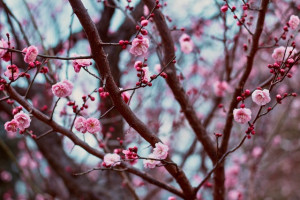 Today is sunny and warm where I live and I’ve found pleasure in seeing flowers appear on plants that have looked almost lifeless for the past couple of months. Those flowers reminded me of a poem I wrote as I emerged from the indescribable pain I experienced after the death of my daughter.
Today is sunny and warm where I live and I’ve found pleasure in seeing flowers appear on plants that have looked almost lifeless for the past couple of months. Those flowers reminded me of a poem I wrote as I emerged from the indescribable pain I experienced after the death of my daughter.
‘Like the first soft rays of the spring sun,
the shy appearance of the first buds on naked trees,
I feel the gentle stirring of life within me
and know that I am whole again.’
I hope that’s how we might feel as we slowly emerge from lock down and social isolation.
The Slow Lane at ‘A Friend’s Place’
Life at our bereavement care centre in Sydney, ‘A Friend’s Place’, is certainly very different at the moment. Valda is a kind of ‘lone ranger’ as she attends to almost non stop phone calls and a myriad of administrative tasks. She arranges all of the zoom sessions that allow the service to adapt and continue in a very different way to that provided before the pandemic.
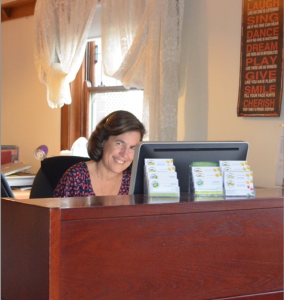 While counselling on line isn’t what most of us would choose, we are grateful that it allows us to stay connected to people who are hurting and to broaden the service’s geographical range. We have all decided that we will continue to offer zoom, phone and email services into the future, post pandemic restrictions, in addition to face to face counselling and support groups.
While counselling on line isn’t what most of us would choose, we are grateful that it allows us to stay connected to people who are hurting and to broaden the service’s geographical range. We have all decided that we will continue to offer zoom, phone and email services into the future, post pandemic restrictions, in addition to face to face counselling and support groups.
All of us at the National Centre for Childhood Grief love what we do and would be distressed if circumstances ever prevented us from continuing to provide what we believe is a necessary and valuable community service. I think Kahlil Gibran’s quote ‘work is love made visible’ expresses what we all feel.
As I read those words my heart goes out to all the folk who have lost the ability to do what they love because of the current social situation. They are experiencing grief as well as financial hardship.
Some folk have been forced to work in roles they hate, simply to survive, a soul destroying situation for many. As I think about them I feel compassion, and almost guilty that I get to do what I love. However, I know that unless counsellors love what they do, unless they genuinely care about the people they work with, their interactions would be destructive. Another of Gibran’s quotes expresses what I mean. ‘If you grudge the crushing of the grapes, your grudge distils a poison in the wine.’
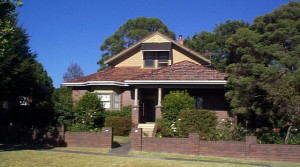 For those Struggling with Grief
For those Struggling with Grief
If you are newly bereaved and finding it hard to ‘swim’ at all, let alone ‘across the rip’, or if grief of longstanding threatens to overwhelm you and/or your children, help is available through the National Centre for Childhood Grief.
Help
Help is always available at National Centre for Childhood Grief or by contacting our outreach service.
Dianne McKissock OAM
NCCG Outreach Support Service
Email support for dying and bereaved people and anyone involved in their care
